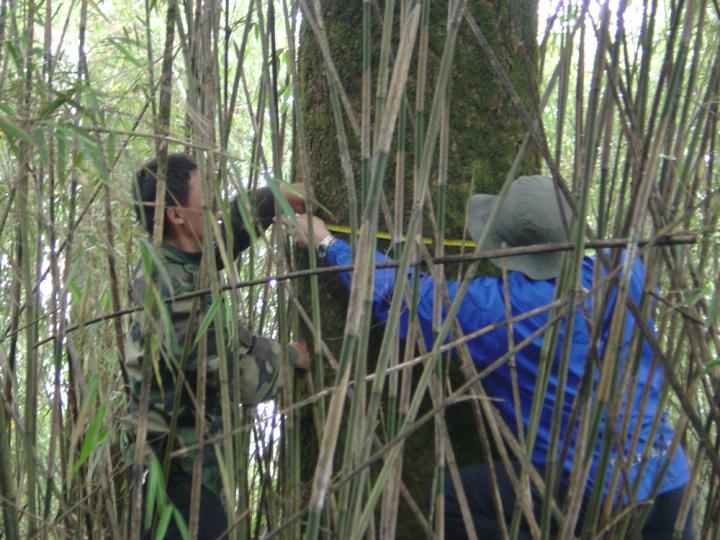
Credit: Sue Nichols, Michigan State University Center for Systems Integration
Lands that shelter forests have value often readily tallied by developers, but until now it’s been more difficult to prove the success of protecting those forested lands in pursuit of sustainability. That can put conservationists on the defense.
A group of scientists from Michigan State University (MSU) have focused on what makes a protected area the most effective at preventing deforestation. Preserving forests means more trees to suck up greenhouse gasses, as well as prevent erosion, mitigate flooding, purify water and quell sandstorms.
The stakes are high since protected areas cover about 15 percent of the world’s surface.
“Bringing valuable expanses of forests under protection is a crucial tool to achieve sustainability,” said Jianguo “Jack” Liu, MSU Rachel Carson Chair in Sustainability and director of the Center for Systems Integration and Sustainability (CSIS). “But protecting forests demands evidence that it works, that indeed deforestation is slowed or reversed, and that efforts are being directed in the right places.”
The group evaluated the effectiveness of China’s 472 protected areas in reducing deforestation from 2000 to 2015. The study, reported in this month’s journal Environmental Science and Pollution Research, concluded that had not the reserves been established, the protected area’s deforested parts would have been 50 percent larger.
The estimated amount of carbon sequestered by those forests that avoided deforestation within protected areas was about 1,271 megatons per year. A tree can sequester one ton of carbon dioxide by the time it reaches 40 years old, according to North Carolina State University.
“The international community has made progress placing more land under protection, and there are several ways to judge them,” said author Hongbo Yang, who earned his PhD at MSU-CSIS and now is a research associate at the Smithsonian Conservation Biology Institute. “The effectiveness of protected areas has been questioned, and we wanted to understand what they can bring to the table in the quest for achieving desired conservation goals such as combating global deforestation. Turns out we also were able to show indeed protected areas that are doing the best to thwart deforestation are ones that are close to cities and confront high deforestation pressure.”
The authors speculate that nature reserves close to cities do contribute more forest preservation because the areas around them are more likely to have trees chopped down since those areas are more economically valuable. They note that across the world there is a tendency to establish protected areas in remote areas, and that in general those aren’t as great at slowing deforestation because they’re less likely to be plundered.
###
“Effectiveness of China’s protected areas in reducing deforestation” was authored by Andrés Viña, Julie Ann Winkler, Min Gon Chung, Yue Dou, Fang Wang, Jindong Zhang, Ying Tang, Thomas Connor, and Zhiqiang Zhao, as well as Yang and Liu.
The work was supported by the National Science Foundation (# 130313), Michigan AgBioResearch, MSU’s Environmental Science and Policy Program, and the National Natural Science Foundation of China.
Media Contact
Sue Nichols
[email protected]
Original Source
https:/
Related Journal Article
http://dx.




